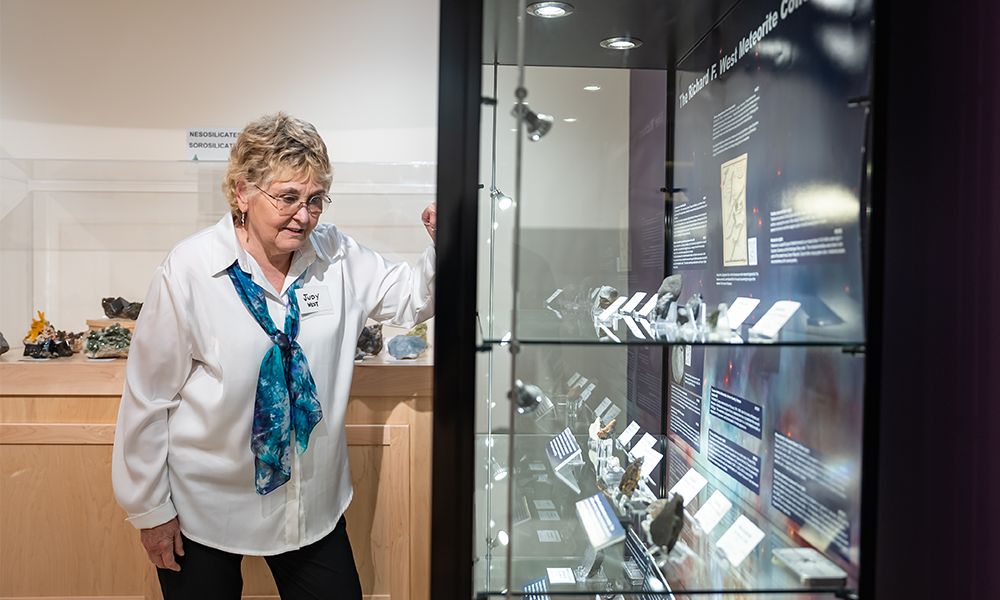JMU opens Richard F. West Meteorite Collection
News
SUMMARY: The JMU Mineral Museum has unveiled the Richard F. West Meteorite Collection, offering visitors an in-depth look into the Solar System’s ancient origins and the evolution of solid celestial bodies.
The James Madison University Mineral Museum has unveiled the Richard F. West Meteorite Collection, offering visitors an in-depth look into the Solar System’s ancient origins and the evolution of solid celestial bodies.
The collection features a diverse array of meteorites, from primitive chondrites and dense iron-nickel specimens to rare tektites formed by meteoritic impacts on Earth.
Located in JMU’s Festival Conference and Student Center, the collection was donated by Josh West, who inherited it from his late father, Dr. Richard F. West, a former JMU graduate psychology professor.
Robin Anderson, JMU’s academic unit head of graduate psychology, spoke about West’s impact on the graduate psychology department and what his legacy means now that his collection is in the museum.
“Rich’s legacy goes beyond the classroom. His kindness and dedication have left a lasting impact on our faculty and students. Even now, with his meteorite collection in the museum, he’s continuing to reach and inspire new audiences,” Anderson said.
The collection will be a permanent addition to the museum, where meteorites are organized to reflect the evolution of the early Solar System, billions of years ago. In keeping with the museum’s educational mission, the collection will also serve as a resource for students to define research and educational projects.
Dr. Liz Johnson, JMU geology professor and Mineral Museum collection curator, said the exhibit was designed and curated with the help of undergraduate students, who researched each specimen and developed descriptive labels to provide context for visitors.
“This collection is more than just a display; it’s an educational experience that lets students and the public alike explore the origins of our Solar System,” said Dr. Eric Pyle, JMU geology professor and curator for education and outreach. “Each piece tells a story about the early processes that shaped planetary bodies, making the science of the Solar System accessible and engaging right here on campus.”
